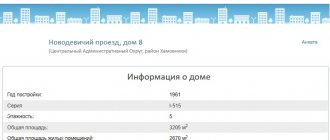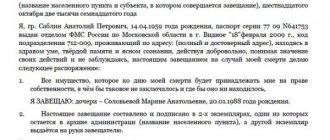Securities are inherited and, according to Art. 1224 Part 1 of the Civil Code of the Russian Federation, rights are transferred to the closest relatives. In Russia, securities are inherited in two ways: by will or law. When making a will, securities are transferred according to a document drawn up and certified by a notary. If there is no will, the procedure for transferring rights is observed in accordance with the order of inheritance in accordance with the Civil Code of the Russian Federation.
Find out how the transfer of rights to securities takes place in Russia by will and inheritance, and what documents are required for this.
The essence of the work of the unified notary information system
To formalize the owner's right, it is necessary to have an idea of the state of the process. Searching for inheritance cases is not the only goal pursued when creating a unified database for searching for inheritance. This is no less popular function, as is the search for heirs who have the right to claim a share of the inheritance. Once you have access, it's easy to do.
The search for heirs is simplified if there is a will where personal data is indicated. But if you have to divide the inheritance according to the law, it is sometimes difficult to find out which notary has opened the inheritance case. Knowledgeable people turn to the registry, which states not only this. As a result, searching for a probate file is simplified to simply filing a request and waiting for a response. The register is an archive that stores information about inheritances registered through notary offices registered in the Russian Federation.
First step: inspect the testator’s home
First, it is recommended to carefully examine all accessible things in your relative’s apartment. Particular attention should be paid to those places where the deceased kept his documents during his lifetime. Most often, the will is found in such cabinets, boxes and caskets.
We also recommend that you read our article on entering into an inheritance after death without a will.
Close relatives living under the same roof as the testator may also know about the place where this paper is stored. However, if they act as heirs at law, then one can hardly expect their understanding and cooperation in the search. In our practice, there have been more than once cases when relatives not only knew about the presence of a document, but also hid it themselves.
Unified register of wills and inheritance cases in the Unified Information System
The database stores notes on operations carried out within the framework of inheritance cases. If the heirs were searched by a notary, registration data will be sent in response to the request. Any action from drawing up a will, opening paperwork, entering into an inheritance, distribution of inheritance is displayed in the register, which is very useful and convenient.
Why is a registry needed?
The register is needed in order to:
- Simplify the procedure for collecting documentation and searching for heirs. The register stores contact information, addresses, and registration information.
- Reduce the number of crimes. Previously, it was impossible to verify the certificate of inheritance rights.
Since the creation of the unified register, the number of frauds associated with entry has decreased by almost five times
Who does this concern?
In fact, the register is necessary for several categories of subjects at once. Useful information:
- For heirs: the question of how to find out whether an inheritance case has been opened is being resolved.
- For notaries: it makes it easier to search for inheritance and for other notarial procedures.
- Law enforcement agencies: establishing the reliability of certificates of inheritance rights in criminal cases of fraud.
- Courts and bailiffs: to verify the certificate of inheritance by law and collect debts in accordance with a court decision.
For each category, only a few examples of reasons for applying to the registry for information about inheritance are given.
Is it possible to refuse to inherit?
Many people decide to refuse an inheritance for some reason. They usually do this in favor of one of the family members. It is certainly possible to do this procedure.
To refuse, you must, within six months from the date of death of a relative, declare your decision in favor of some other family member. It is very important to contact a law firm in a timely manner so that in the future there will be no additional problems with resolving this issue.
Of course, many are interested in how to find out about a will after death, find it and, most importantly, enter into inheritance rights. It is quite difficult to understand this issue on your own. To do this, it is necessary, as mentioned above, to go to various offices, collect all kinds of information, and so on. For many people, this process may seem long and complicated, especially if there is not much time for this procedure.
An excellent way out of this situation would be to contact a law firm. We will explain how to find out if a deceased relative has a will and how to enter into inheritance. It is much easier to work with professional lawyers who have extensive experience in various issues of this kind.
We will answer all your questions and will definitely help! Call us right now on the Hotline (812) 425 31 40 and get legal advice!
How to find out information about inheritance?
There is an Internet service that allows you to obtain sufficient data about the inheritance by accessing the registry. All you need to do is go to the website, fill out the fields to form a request and submit your application. The registry system will automatically find everything that has ever been mentioned by a notary. This is not only about searching for heirs under a will. The register contains notes about cases when the inheritance was actually entered into (without notarial participation).
Access to information in the Unified Information System
The service is free. There are also no restrictions on categories of subjects. This is the simplest answer to the question of how people learn about the opening of inheritance cases. An individual can quickly find an inheritance in the registry if the testator has died. Notaries, investigators, banks, judges and bailiffs also search for heirs using the registry.
Who can receive information about the opening of a case?
Despite the confidentiality, the information is available to any category of citizens. It is enough to enter the last name, first name and patronymic of the deceased in the appropriate fields. An extract from the register contains information about the certificate, but does not concern the value of the inheritance. Authorized persons, government officials, notaries, and courts have the right to learn in detail about an open will. But ordinary citizens are also classified in this aspect.
Outsiders
A publicly accessible register helps determine which notary is handling the inheritance case. The register also indicates the number of the inheritance certificate. The notary's office will tell you what is included in the inheritance, if the applicant has sufficient rights to use confidential information from the register. Heirs claiming inheritance under a will, with a mark in the register upon presentation of a passport, will easily achieve what they want.
Relatives
The unified notary information system is open to everyone. But as for such data as the value of the inheritance, location, list of applicants, it is closed from outsiders. But if you go to the notary office and present evidence of family ties, the authorized person submits a request to the registry, and an extract comes from the registry indicating everything that is needed to enter into an inheritance.
Information at the request of state and municipal authorities
When registering an inheritance based on the fact of ownership of property, the procedure is carried out with the involvement of the leadership of local self-government bodies. Officials also need to conduct a check, for which they need to know how to find a probate file. The Federal Chamber of Notaries issues documents based on official requests. For this purpose, a corresponding statement is written. The paper is delivered to the reception area. A receipt is marked and an entry is made in the incoming correspondence log.
Information on individual requests
It is superficial, but gives an understanding of the most important points, indicating what needs to be done next. In the Unified Register of Wills, inheritance cases are registered, numbered and dated, which is displayed in the search program after entering the initial data. Knowing that the inheritance is available, it is enough to contact the authorities authorized to issue the certificate. This must be done within six months. The starting point is also contained in the register - the date of opening of the inheritance.
The heir believes that his rights have been violated: where to go
If, using the notary's register, the heir finds out that his rights have been violated, he has the opportunity to address this issue to the court or the police. How the issue is resolved will depend on the circumstances of the particular situation and the status of the violations identified.
In some cases, the heir may find out that the period for vesting rights has already passed, but he was not aware of the will. In this case, he has the right to initiate restoration of the deadlines through judicial proceedings. During the process, he must prove that the reasons for the delay were valid.
How to use the service?
The search works by the testator's last name. As a result, you can find the notary who opened the inheritance (also indicated in the register). Further actions are stipulated by the Civil Code. Having appeared in person at the place of opening of the inheritance indicated in the register, the applicant writes a statement. 6 months from the moment the testator is officially considered dead, a document is issued on the basis of which the property is re-registered to the heir.
How to find out if the deceased left an inheritance?
There is no database of heirs in Russia, and cannot exist. A written expression of will allows you to appoint any person, not necessarily a relative, as a legal successor. Therefore, the successor is interested in accessing the registry in the first place. Having found out the address of the notary at the location of the inheritance (opening of the inheritance case), applicants go through the procedure of obtaining a certificate of ownership. The register stores information about the existence of a will and inheritance.
Nuances you need to know when entering data
To obtain the registration number of the required document, the full name of the testator is sufficient. Next, other applicants are being sought for inheritance. Before checking the certificates of inheritance rights for accuracy, make sure that the full name matches the person you are looking for. This data is often repeated. The service issues certificate numbers of inheritance rights according to the law for namesakes. Dates of birth and other information must be compared to identify the testator.
Finding a Will Made in Emergency Circumstances
If a citizen was in conditions that could cause his death, then the order is issued:
- in simple written form;
- with one's own hand;
- certified by 2 witnesses.
In case of termination of special conditions, the testator must certify the document by a notary within 30 days. Otherwise, the expression of will loses force.
If the citizen did not have time to certify the order, then the document can only be found in the personal belongings of the deceased . If an order is found, the heir must apply to the court to recognize the circumstances as extraordinary.
Is it possible to find out about the presence of a will if a person is still alive?
No, it’s easier to wait until it appears in the register of open inheritance cases. Data about future inheritances are not disclosed because they are considered an absolute secret for everyone except the will-maker and the notary. There is no such information available in the online information retrieval system. There is a database for storing registration records of executed wills, but it is accessible only to a notary.
Those claiming compulsory share have nothing to worry about. The right is here to stay. For the rest, all you have to do is be patient and then access the registry again. Data are recorded immediately after death. In order to carry out the procedure for entering into an inheritance correctly and the result is undeniable, it is enough to hire a lawyer specializing in inheritance matters, draw up a power of attorney and instruct him to carry out the necessary actions.
If a will is not found
In this case, it is more likely that it simply does not exist. Otherwise, there would be a mention in the register. Mistakes also happen, such as, for example, when registering an inheritance without actually notary support. But if the existence of an expression of will during life is not established and a mark is not made in the register, this does not mean that the inheritance is unavailable.
In such situations, a notary will help, and the division of property will be carried out according to the law in order of priority. The presence of priority applicants does not mean that you need to abandon the idea. They will issue a refusal, agree to compensation, will be found unworthy, or may even die, no matter how cruel it may sound. Therefore, the verification and search will have to be resumed after the death of the testator.
Why is there no information about the inheritance in the registry, although the person died a long time ago?
A person who owns nothing will leave nothing but debts. Creditors have the right to claim debt if the register contains a note indicating acceptance of the inheritance. No one will look for successors to return money or material assets. The Unified Information System does not contain any mention of the property of the deceased, if it does not exist documented.
Let's assume that there was a man. He used the car by proxy, gave the apartment to his common-law wife, and issued a deed of gift for the house when he was still alive. In fact, there is a lack of material benefits, although he enjoyed them. For example, notarial activities began on time. A case is opened, search work is carried out, and it turns out that there is actually no inheritance. No notification is sent to the registry. Registration is not possible.
Where is the will kept until death?
The deed of the testator's last will is drawn up in two copies, one of which remains with the notary, and the other with the testator. The notary keeps the document for 75 years and, in case of resignation earlier, transfers the will to another notary. Only after the expiration of the established period is the paper sent to the state archive.
The copy issued to the testator can be located anywhere, but most often - among his personal belongings, possibly together with other documents. It can also be transferred to another person, for example, an executor of the will, who, after the death of the testator, carries out his instructions regarding the distribution of property.
In accordance with Articles 1127 and 1129 of the Civil Code of the Russian Federation, not only a notary has the right to certify a will. In unusual situations, the following persons acquire this authority:
- the head physician of the medical institution (his deputy or the doctor on duty);
- captain of a ship flying the flag of the Russian Federation;
- director of a nursing home (chief physician);
- head of an expedition, Antarctic station or field base;
- commander of a military unit (in the absence of a notary at its location);
- warden;
- random witnesses (in emergency situations).
This means that the document can be stored with them, although the likelihood of this is low: clause 3 of Art. 1147 of the Civil Code of the Russian Federation establishes that the person who certified the will is obliged to send the paper to the notary at the place of residence of the deceased at the first opportunity.
How did you search for inheritance cases before?
It was customary to draw up documentation in a certain place - where the testator lived based on registration. In extreme cases, it was a question of temporary registration or the place where the inherited mass is located. The authenticity of information about the inheritance could not be verified through the registry; one had to contact a notary, of whom, say, there were hundreds in Moscow. But if the case was found, the inheritance was formalized there. The territory of the Russian Federation is huge, which further complicated the search efforts.
The search took months. The death certificate didn't help. You know the city - a notary or a lawyer will help, it was still not known. Independent measures turned out to be costly and ineffective. Not knowing where the testator lived meant losing the inheritance, because there was no register, and one had to contact officials to submit a request to the leading notary body in the country, which also took time and cost money.
What changed?
The procedure has been simplified to a banal online application that anyone can submit. There is a full-fledged service for searching for inheritance cases and obtaining comprehensive information. The Federal Chamber of Notaries (FNC) has established a unified register for storing details of transactions executed by notaries in Russia.
Real estate and movable property
To understand how to look for an inheritance, you need to define what is real and movable property.
- Real estate is objects that cannot be moved without causing serious damage. These include: land, house, apartment, unfinished housing and others.
- Movable property includes everything that is not immovable. This is, for example, a car, jewelry, money, securities.







